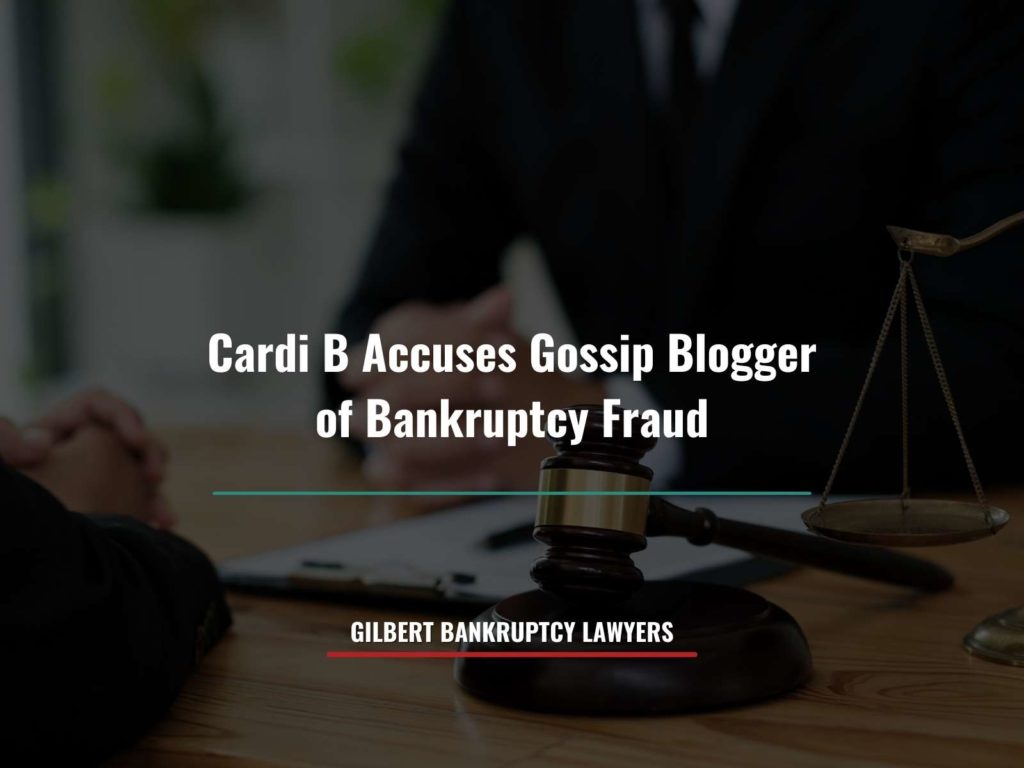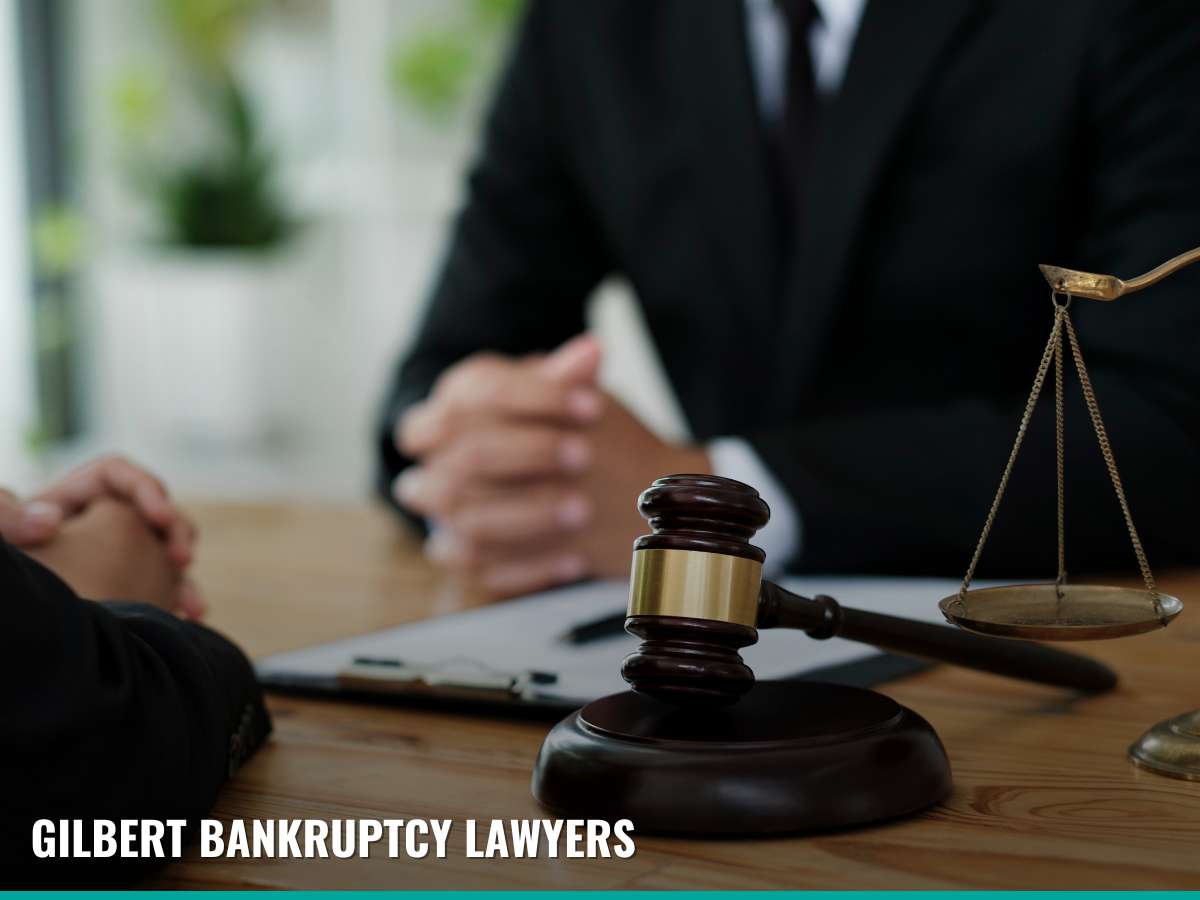With the cost of living increasing faster than salaries, it’s becoming more and more common to hear of individuals and businesses declaring bankruptcy. Some of these bankruptcy debtors are still experiencing the effects of the COVID-19 pandemic. Others find themselves in bankruptcy court for reasons unrelated to the current economy. Bankruptcy can delay or even permanently stop a lawsuit against the debtor. But some debts can’t be discharged by a bankruptcy filing, such as a defamation judgment.
In 2022, rapper Cardi B sued gossip blogger Tasha K for making false claims that she worked as an escort, did hard drugs, and had an STD. Cardi B was able to disprove these claims using medical records. The jury ruled in her favor and awarded her $4 million. After Cardi B began to collect against Tasha K by seizing her assets, Tasha K declared bankruptcy. Filing for bankruptcy triggers the automatic stay, which freezes assets and stops creditors- such as a lawsuit plaintiff like Cardi B- from engaging in collection efforts. Cardi B objected to her debts being discharged by the bankruptcy filing, and the judge took her side. This would leave Tasha K with at least $3.4 million of the debt owed to Cardi B, even after a bankruptcy discharge. But Tasha K has told the court that she simply doesn’t have the assets to pay the amount owed to Cardi B. She declared having assets worth between $50,000 and $100,000 but debts between $1 million and $10 million. However, Cardi B has alleged that during the discovery process, her representatives discovered that Tasha K had secretly transferred at least $30,000 into offshore accounts. Transferring funds and failing to disclose them on a bankruptcy petition is bankruptcy fraud, a serious offense that can lead to a felony conviction and time in prison. It should also be noted that Kevin Hart also sued Tasha K in early 2024 for extortion.
What are the Consequences of Bankruptcy Fraud?
There are several courses of action that can be considered fraudulent in a bankruptcy filing. The severity of the penalties a debtor will face for committing bankruptcy fraud will depend on their specific circumstances. The trustee may seize a debtor’s assets, including funds in a bank account or transferred to someone else. The debtor’s case will face delays if there are fraud allegations, and the case might even be dismissed entirely. Alternatively, one or more creditors’ debts may be excluded from the discharge, like Tasha K’s defamation debt to Cardi B. In the most severe instances of bankruptcy fraud, the debtor can face criminal charges.
Bankruptcy fraud is defined by 18 U.S.C. § 157. It can be any action to devise or conceal a financial scheme meant to defraud. Filing a document with false information is also considered bankruptcy fraud. Making any false or fraudulent representations related to the bankruptcy case can also result in bankruptcy fraud charges. This is considered a federal felony, and thus has serious repercussions. The defendant can be fined thousands of dollars for committing bankruptcy fraud, as well as serve up to 5 years in prison. The defendant may need to complete probation after completing prison time, community services, and other requirements set forth by the court. A convicted felon will face numerous offenses besides those issued by the court. Convicted felons lose civil rights like the right to vote and possess a firearm. A defendant may need to apply to the court to have these rights restored after paying their debt to society. It will also be harder to pass background checks for things like housing and employment. If you are concerned about the criminal penalties associated with bankruptcy fraud, contact a full-service law firm practicing both bankruptcy and criminal defense for your free consultation- get scheduled today here or at 480-448-9800.
Adversary Proceedings in Bankruptcy
Some bankruptcy cases proceed smoothly with little pushback from creditors. Others may require that the debtor defend their position- and their petition- before the court. An adversary proceeding is a complaint similar to a civil lawsuit within a bankruptcy case. This can be an objection to discharge, a determination on the dischargeability of a debt, and more. It may be necessary to hold a hearing on an adversary proceeding that is in addition to the 341 Meeting of Creditors.
It’s important for a debtor to present information that doesn’t conflict with their petition in an adversary proceeding hearing. If the creditor is successful in an adversary proceeding, their debt can remain after a bankruptcy discharge, in addition to other negative consequences the debtor may face. Don’t go into an adversary proceeding- or a bankruptcy filing in general- unprepared. A skilled bankruptcy attorney can help you reap all the benefits of filing an accurate petition without the repercussions of making mistakes that could even be deemed fraudulent. If you’re looking for bankruptcy representation in Phoenix or Tucson, Arizona, our firm offers free consultations by phone- call 480-448-9800 to get started.
Choosing the Right Type of Bankruptcy for Your Situation
Tasha K declared chapter 11 bankruptcy, which is less commonly filed than its more popular counterparts, chapter 7 and chapter 13. While chapter 11 is an option for an individual, also known as a consumer in bankruptcy, it is usually unnecessary given a typical person’s circumstances when compared to simpler bankruptcy chapters.
Chapter 7 bankruptcy liquidates unsecured debts. This can be all that is necessary for someone who is in over their head with credit cards, medical bills, etc. The process only takes about 4 to 6 months, and there will usually be minimal involvement from creditors unless one or more files an adversary proceeding. Once the debtor attends their 341 Meeting of Creditors and completes their credit counseling courses, all that is left to do is wait for debts to be discharged. However, not everyone qualifies for chapter 7 bankruptcy. There are strict limits based on income, prior filings, other restrictions that could make chapter 7 less effective than other forms of debt relief. To determine your eligibility for chapter 7 bankruptcy in Arizona, call 480-448-9800 for your free debt evaluation with one of our experienced debt relief lawyers.
Chapter 13 bankruptcy takes debts and reforms them into a payment plan. Some unsecured debts can be discharged, but secured debts will be paid off with certain protections and benefits from the court. A chapter 13 plan lasts 3 or 5 years. The amount paid into the plan will vary based on the debtor’s income and their debts. If you’d like to know what a chapter 13 bankruptcy would look like for you in Phoenix or Tucson, Arizona, call 480-448-9800 for your free consultation with our firm.
Learn More About Bankruptcy in Arizona with No Risk or Obligation
Hearing about bankruptcy in the news may make you curious about if it can help your financial situation. Bankruptcy offers numerous benefits and can make it possible for someone to turn around poor credit and unmanageable debts. It can also stop lawsuits, wage garnishments, repossessions, and more. If you would like to discuss how bankruptcy could impact your financial situation, Gilbert Bankrutpcy Lawyers is here to help, call us at 480-448-9800 to schedule an appointment with a dedicated member of our bankruptcy team.
Gilbert Bankruptcy Lawyers
Office: 480-448-9800
Email: info@myazlawyers.com
Website: https://gilbertbankruptcylawyers.com
Additional Information at:
Phoenix Bankruptcy Lawyer
Mesa Bankruptcy Lawyers
Phoenix DUI Lawyer
Chandler Bankruptcy Lawyer
Tempe Bankruptcy Lawyers
Vegas Zero Down Bankruptcy Attorney
Gilbert Bankruptcy Lawyers
Tucson Bankruptcy Lawyer
Arizona Zero Down DUI
Las Vegas Bankruptcy Lawyers
AZ Bankruptcy Lawyer

